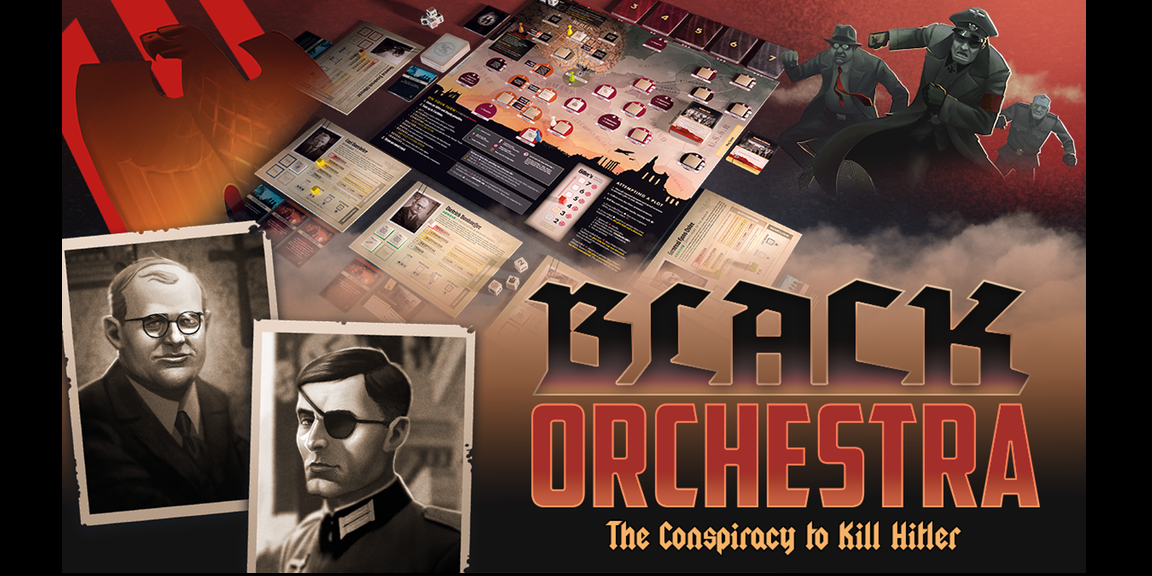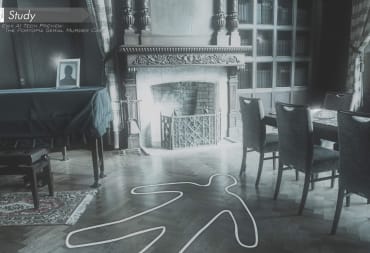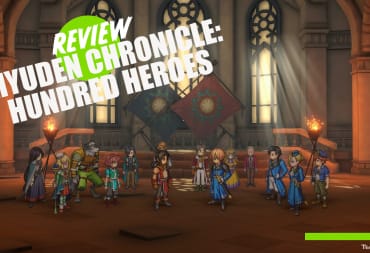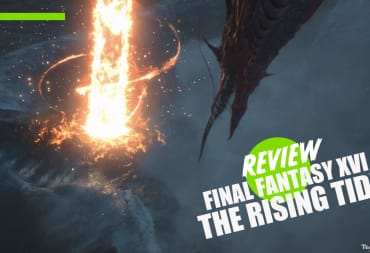Black Orchestra is an interesting "what if" style of game. The game is based in World War II Germany and places its players in the shoes of the Schwarze Kapelle, the titular Black Orchestra, a group of conspirators who plotted to kill or overthrow Hitler. In reality, the Schwarze Kapelle failed, and many members met gruesome ends due to their involvement. In the game, players attempt to rewrite history by successfully enacting one of many Plots to kill Hitler or remove him from power. This is a difficult game, though, and, more often than not, the results of the game coincide with the way things actually turned out, sparing the gruesome details.
First and foremost, Black Orchestra is incredibly luck-based. If you don't like games that hinge on the roll of the dice, then you are probably not going to like Black Orchestra. Luck plays in to nearly every aspect of the game, from where key items are found, to which Plots you will have available to you, to which Events will happen and, most importantly, if you will actually succeed at a Plot once you finally have all of the pieces together to attempt it. The only real luck mitigation that the players have access to are a few cards (if you happen to draw them) and ensuring that you roll as many dice as possible when you attempt a Plot. In many games, such a reliance on luck is almost a pure negative, but in Black Orchestra the reliance on luck, and the frequency of failure because of it, actually plays into the theme of the game. The game has you trying to accomplish something that real people failed to do, so the odds being stacked against you, and the reliance on luck fit, but not so well that that you will suddenly love luck-based mechanics if you don't like them in other games.
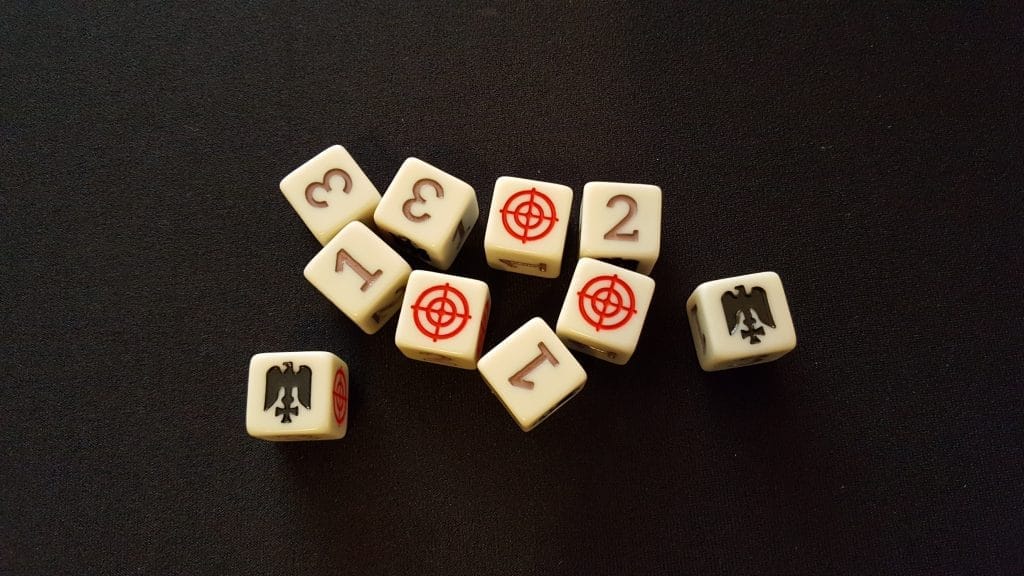
There is only one way to win, by successfully enacting a Plot, and two different ways to lose. If all of the players get arrested at the same time, the game ends in failure. If time runs out, the game ends in failure. Time is tracked via a series of Event cards that get revealed after each player's turn. Sometimes they can help the players, but often they cause problems for the players instead. Just when you think you are ready to make your move on Hitler, an Event will cause him to move, making things more difficult, or,, based on the Plot you are planning, impossible for the time being. The board opens up as time passes, giving you access to more locations and more resources, but if you take too long, the board suddenly contracts near the end, further increasing the already high tension as time begins to run out.
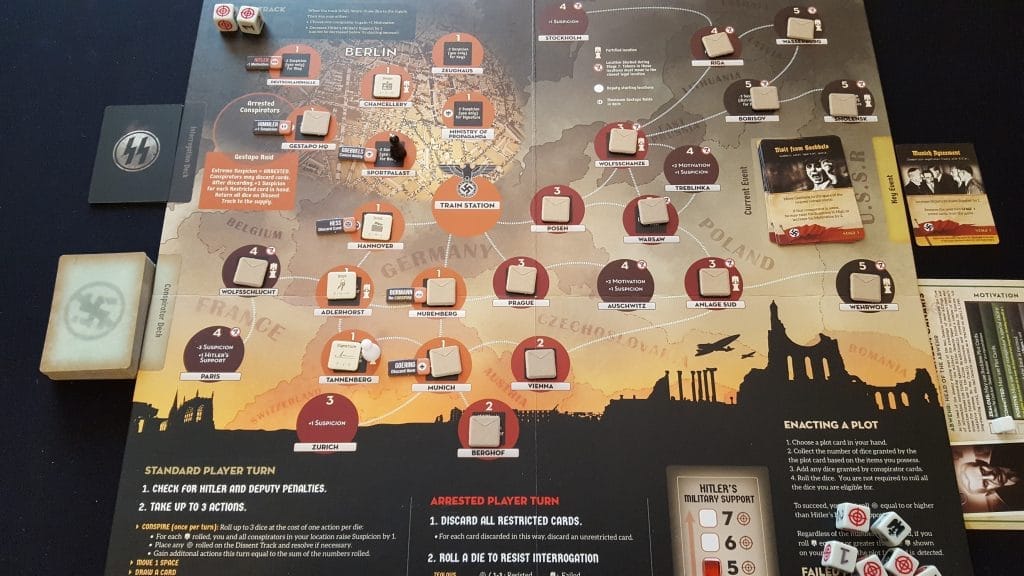
Players have to manage their character's Motivation (Plots can only be attempted when characters have a certain level of motivation), their Suspicion level (Plots are harder the higher your Suspicion, and extreme Suspicion can, and often does, lead to arrest), Hitler's Military Support (determines how hard any Plot is to complete), and the Items, Resources and locations needed for any Plot to be attempted. It's a lot to consider, especially since the Plot cards are shuffled into a deck with non-Plot cards, and there is no telling when you will draw one, nor which you will draw. On top of that, the Items needed for the various Plots are randomly distributed, face down, across the board during setup. Players need to hunt for Plots that they think they can be successful at while simultaneously searching out items specifically required for those Plots, and then get those things to the player who will ultimately attempt the Plot. Even when all of those factors align the Plot's success still boils down to a roll of the dice. It's very difficult to get everything to line up just right, and heartbreaking to have the dice fail you after you've done all of the work to make it happen.
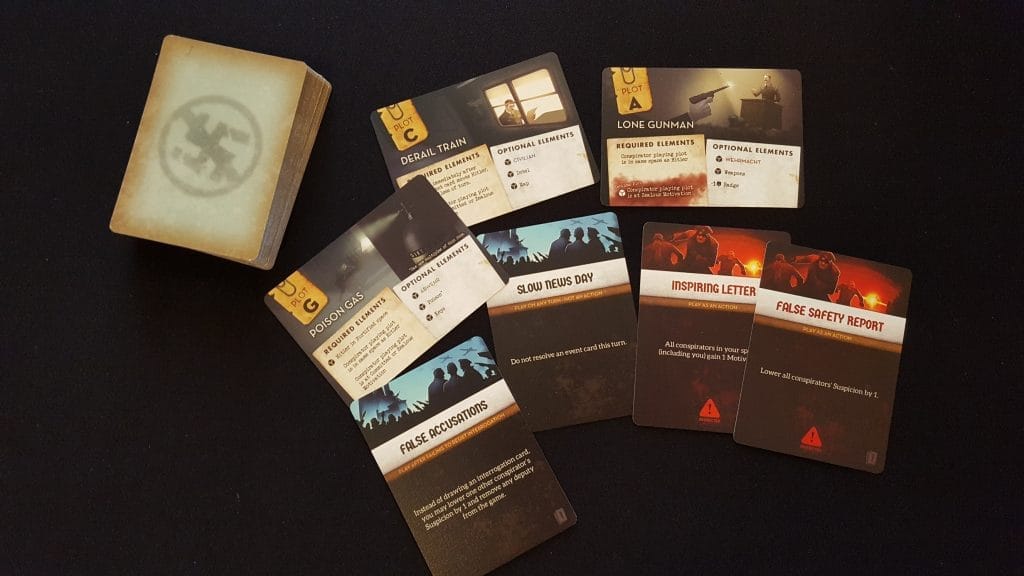
When players do get arrested, they get a chance to resist Interrogation and be set free, which encompasses their entire turn. If you don't resist Interrogation you have to draw a card which, of course, is bad for you, and even if you manage to resist and get set free, you wasted an entire turn. There's a tricky balancing act between getting to where you need to go, getting the Motivation and resources you need once you get there, and avoiding Suspicion while you do it.
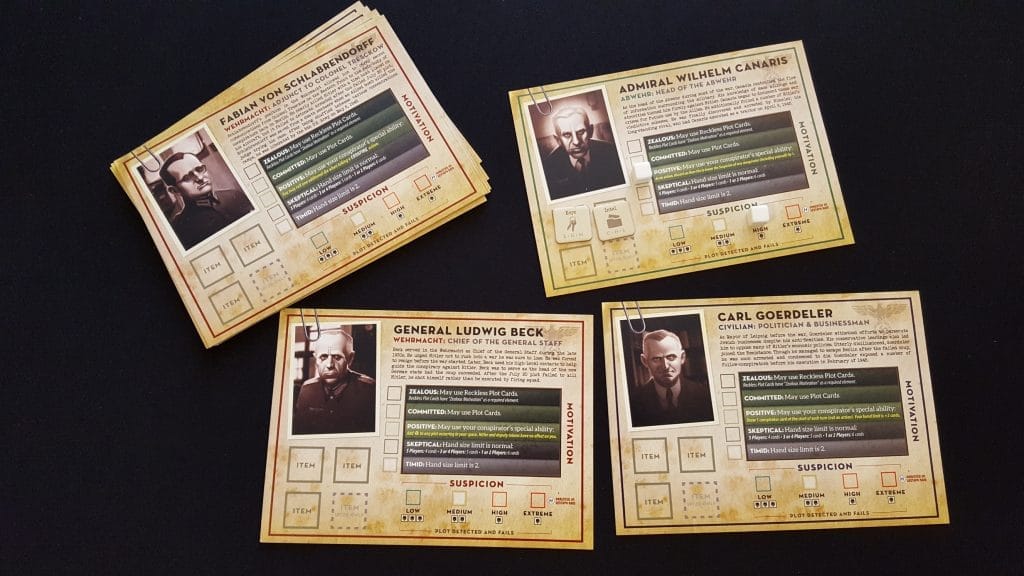
The game ends in failure more often than not, but there are usually so many tense, exciting moments during the game that even a losing effort is interesting. Due to all of the luck based aspects, the game can be swingy. The only anti-climactic game that I've played of Black Orchestra actually involved our first win, in which we found a Plot and all of the Items needed for it almost immediately, and succeeded that Plot before we'd even made it out of the first time-phase. Contrast that with the last game I played before this writing though, which was a tense game filled with 6 failed Plot attempts that we managed to pull off with only two turns remaining before we ran out of time. That last game was the most fun I've had with the game, while the first was the least fun, but usually the game lands somewhere in the middle, with some tense, memorable moments sprinkled amidst a lot of failure and letdown as we'd come close, yet end up just short of the finish line.
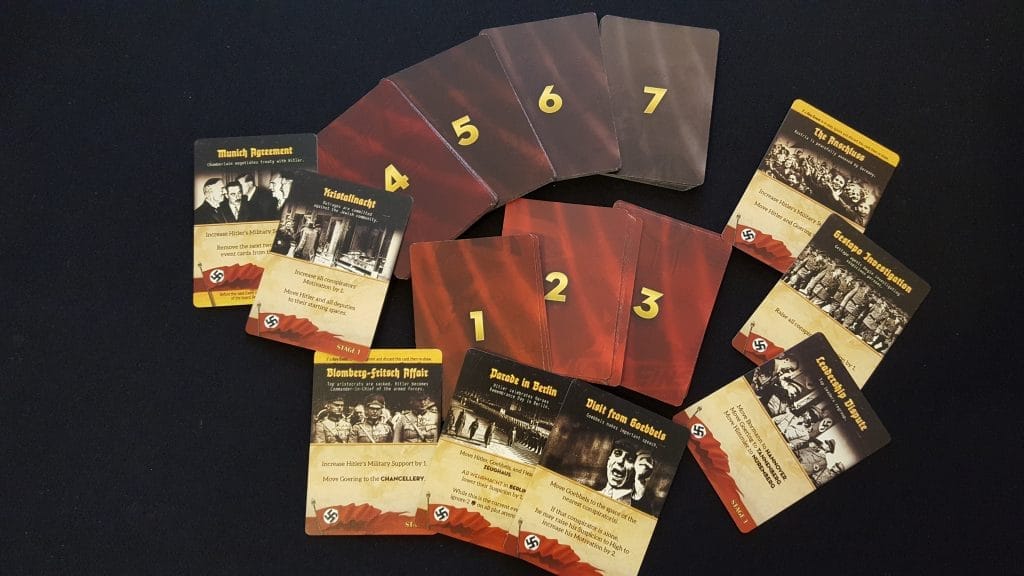
A note on editions: This review is being based on the first edition of Black Orchestra. A second edition was recently Kickstarted successfully, and it looks to flesh out the Interrogation system in the game. The current system is functional, but the new version looks like it adds more depth, and should improve the game overall. The game is good as it is, but if you are interested in purchasing a copy, I'd recommend waiting until the second edition hits store shelves so that you can get a richer experience.
A note on “chrome”: Black Orchestra has good components, the art is historic and thematic, and the color scheme of the board and components fit in really well with the theme, lending the game a more sombre mood. The blurbs of history about the different characters is interesting, and the rules are easy to learn.
The bottom line:
Black Orchestra is a very interesting cooperative game, especially if you are a student of history. The real-world connections make the game both intriguing and incredibly tragic, especially since your score is kept as a tally of Lives Saved if you win. The game is fun, but it also has a gravitas to it; a serious undertone that makes it feel heavier than it is, and it keeps the mood more somber than most games. There are still thrilling moments to be had, and it is very exciting when you actually succeed, but more often you are met with sobering defeat, and the reality of how things actually played out is hard to ignore even when you win. With that being said this is a great game for game groups who enjoy difficult cooperative games, and it would be a good fit for use in educational settings as well. Black Orchestra would fit in just as well in history class as it does on the kitchen table.
Get this game if:
You enjoy cooperative games.
You like difficult games.
You like games with historical themes.
You prefer games set in the real world rather than fantastical settings.
You enjoy games set during World War II.
Avoid this game if:
You prefer directly confrontational games.
You prefer easier games that you are more likely to win than lose.
You dislike games with a high luck-factor.
The copy of Black Orchestra used for this review was provided by Game Salute.
Review Summary
Black Orchestra is a very good game with a real-world theme that keeps things more sombre than most games. The game has an incredibly high luck-factor, and it is difficult to pull off a victory in Black Orchestra, so be prepared to lose far more often than you win, and then even when you win, be prepared for a sobering reality check as you tally your score in Lives Saved which hammers home just how tragic the events that actually transpired were.
(Review Policy)Have a tip, or want to point out something we missed? Leave a Comment or e-mail us at tips@techraptor.net
